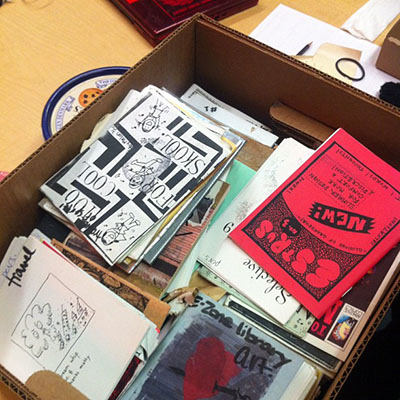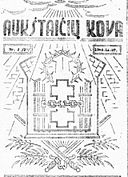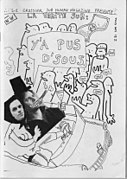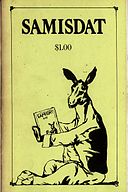Podstory: A Wandering Backstory of Podcasting
Can you imagine a time when the sounds of the world around you could only be recorded in your own memory? Stories were told around the campfire and music was always 'live'.
The history of podcasting begins with the history of recorded sound itself.
the history of recorded sound
portable audio players
"The Walkman was first created because Sony co-founder Masaru Ibuka wanted to be able to listen to music on long flights.
The first model of Sony Walkman, the TPS-L2, was released in 1979, and it proved to be a huge hit."
-The Design Museum
Click me
The first Walkman music players worked with cassette tapes, but later CDs became the most popular medium for listening to music.
"So a CD was like Spotify on a disk."
-Robert Siegel, Host NPR
INTRODUCTION
What's a podcast? Simply put, it is a series of audio episodes distributed online.
But this website seeks to dig deeper into the cultural context in which podcasting was developed; a context which includes the growth of the gay rights movement, third wave feminism, the skyrocketing economic growth of the United States, the collapse of the Soviet Union, and rapid technological developments. Exploring this context can expand understanding on the forms, motivations, and potential for podcasting.
mp3 and the iPod
media (physical & digital)
distribution
Wander through the topics and subtopics.
the history of recorded sound
media (physical & digital)
portable audio players
mp3 and the iPod
distribution
cassette culture
zines
samizdat
cassette culture
zines
samizdat
"The mass introduction of cassette technology in the late 1970s and 1980s changed musical landscapes on a global level. Audiocassettes initiated new social and economic relationships around sound recordings, allowing individual users to reproduce, remix, and distribute their own material.
Cassettes also set the first substantial wave of informal music piracy into motion, radically changing local music industries and further entrenching recorded music in homes, vehicles, and public spaces around the world."
-David Novak, Japanoise: Music at the Edge of Circulation
Samizdat means 'self-publishing' in Russian and refers specifically to the dissident activity of creating underground publications in the heavily censored USSR. Samizdat publications ranged in subject from politics to pop culture to literature. Books such as The Master and Margarita, which had parts removed by government censors, and Doctor Zhivago, which was denied publication in the USSR, were circulated in samizdat form.
The editors of the samizdat culture magazine Hurray Boom Boom! also created a radio program which was then circulated on tape reel and cassette. This radio program, called The Illusion of Independent Radio, could be considered a precursor to podcasting.
This website is created with a tool for independent web publishing and is an example of an internet samizdat.
early podcasting
Zines are self or independently published magazines. They often take the form of black and white photocopied pages which are distributed freely.
They "provided a function that became a key part of zine culture in the 1980s and beyond: giving people a voice outside the scope of the mainstream media."
-A brief history of zines, The Chapel Hill Rare Book Blog
In their role as a voice for people outside the cultural mainstream of their time, popular zines covered issues related to:
Science Fiction Fandom
Punk Rock
LGBTQIA+
Feminism
Politics




mp3 technology allowed individuals to copy or "burn" audio files onto CDs and (legally and illegally) share them with others over the internet.
Fileshare websites like Napster and Limewire began popping up, creating an online black market for music sharing, and lawsuits aimed at shutting them down followed close behind.
"When they [the music industry] realised it was enabling mass piracy that could destroy their business, they dealt with file-sharing almost exclusively through lawsuits and copyright protection."
-Steve Knopper, The Rolling Stone magazine
In this environment, Apple founder, Steve Jobs created iTunes. This allowed consumers to legally purchase songs for their digital music libraries for as little as 99 cents.
Though media piracy is definitely still popular, the ability to legally purchase digital media - music, films, games - started with the popularization of iTunes.
Of course, to take your music along with you, you'd need a new kind of portable audio player, and one of the most popular was the iPod.
early podcasting
resources and fun things (links)
There is some debate about how podcasting was initially developed, however most agree that software developer Dave Winer and VJ Adam Curry got together to work on the idea. Dave Winer wrote code for blogging and had developed RSS which allowed readers to get notifications and access blogs to which they subscribed. Adam Curry wanted to know if this means of subscribing to content could also work with audio files as well.
At first, 'audio blogging' was an underground idea which was not used by many people. The first downloadable audio blogs were about technology - which makes sense because people interested in technology were the only ones who would know how to access them. However, new programs which allowed you to search through large databases of audio blogs, and more importantly, to subscribe, boosted usability.
In 2004, Ben Hammersley, a journalist for The Guardian, used the term 'podcasting' in an article to describe these audio blogs, and the term stuck.
themes
Lindsay Eyink,
CC BY 2.0, via Wikimedia Commons
Restaurant tante lina,
CC BY-SA 4.0, via Wikimedia Commons
Bronius Krivickas,
CC BY 3.0, via Wikimedia Commons
Merritt Clifton,
CC BY-SA 3.0, via Wikimedia Commons
Joi Ito from Inbamura, Japan,
CC BY 2.0, via Wikimedia Commons
Adam Curry,
CC BY-SA 2.0, via Wikimedia Commons
image credits
What themes do you see emerging when you consider the history of podcasting?
Here are some to consider:
Public space/private space
Popular or generic to Personalized or specific
Controlled production and distribution vs self-publishing
resources and fun things (links)